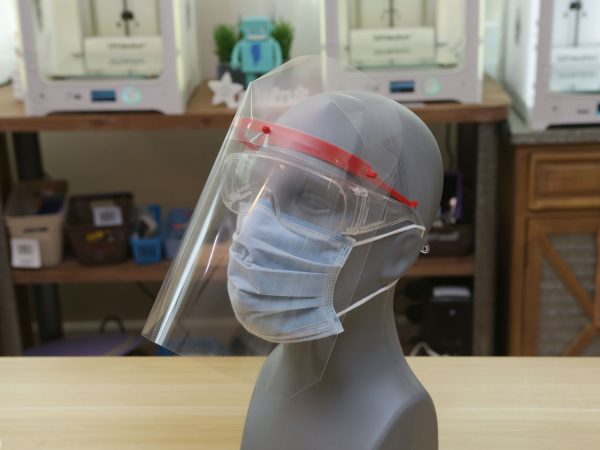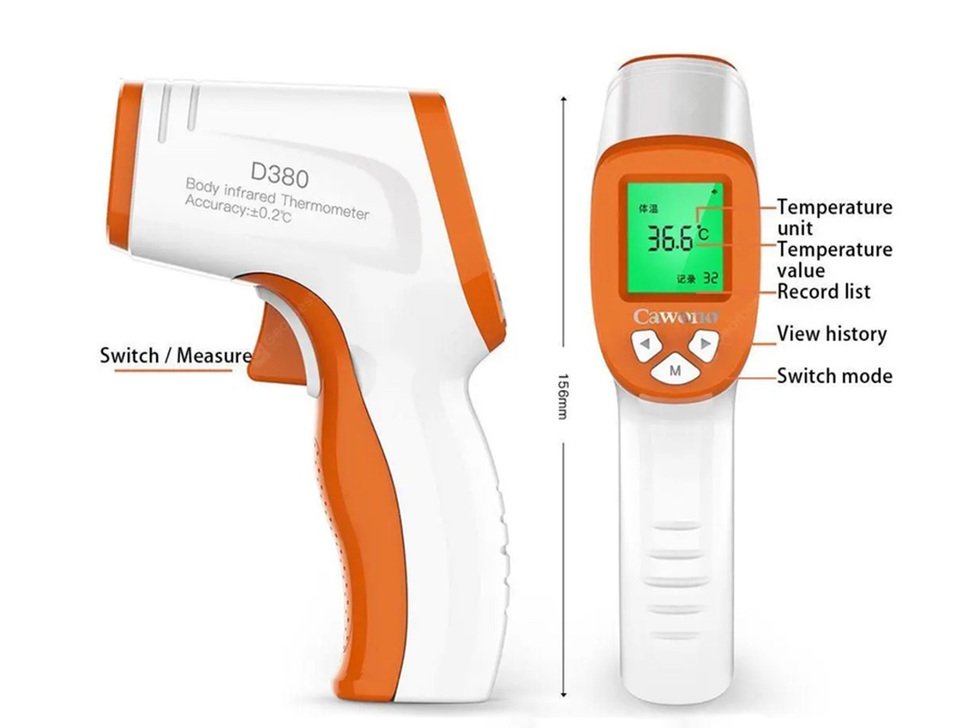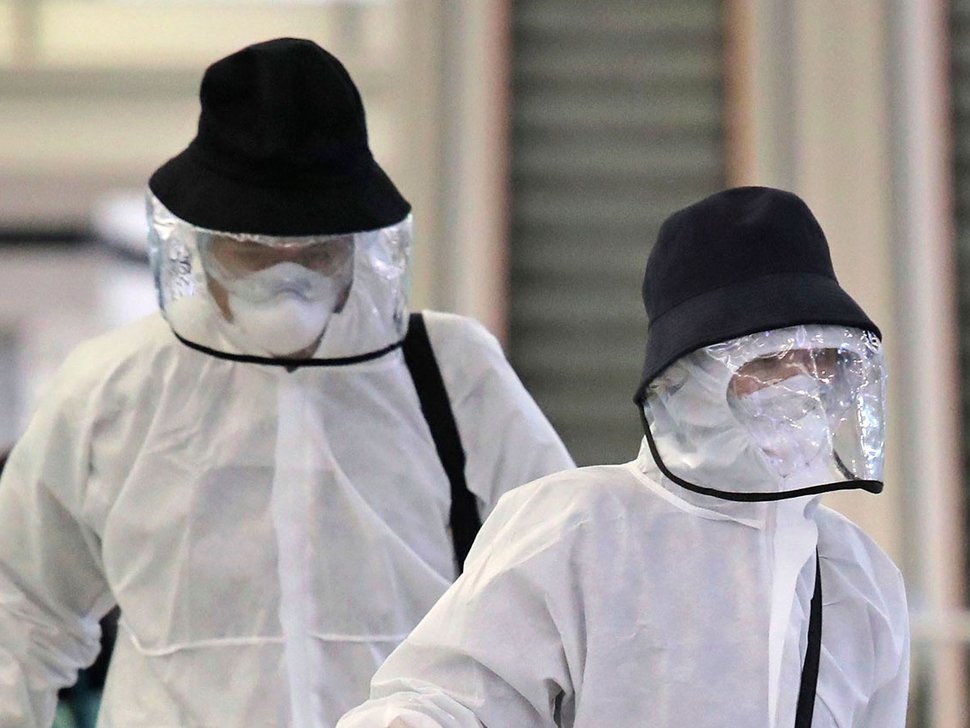Electronics Maker Adafruit Switches to Producing Face Shields, Other PPE
We talked to Adafruit about what it’s like to switch from selling tech to selling protective gear, and when hobbyists can expect things to return to normal

“The average consumer probably shouldn’t be buying anything right now unless it’s related to COVID needs,” electronics manufacturer Adafruit’s managing director Phillip Torrone told me over the phone from the company’s Manhattan factory last week. And yet, Adafruit’s 50,000 square foot space remains open, with “eight to ten employees” commuting in daily to churn out products. Even as the rest of New York City locks down for the pandemic, the city has labelled Adafruit an essential service. However, instead of hobbyist techies, Adafruit is now selling exclusively to hospitals, health care workers and researchers, hard at work repurposing its manufacturing lines to produce face shields, ventilator parts, fever scanners and other gear to help fight the coronavirus pandemic.
Founded in her dorm room in 2005 by then-MIT student Limor Fried, Adafruit is a woman-owned maker manufacturer that specializes in Raspberry Pi, Arduino, components like LCD displays and sensors, as well as custom products like its own in-house Feather computer board. In the time since Fried’s graduation, the company has grown into a 50,000 square foot Manhattan factory and takes in $40 million annually, putting it on par with the Raspberry Pi Foundation itself.
Now, however, the company is diverting all of its resources to helping protect New York health care workers, its own staff and eventually everyday citizens from coronavirus. As a New York-based publication, we wanted to sit down- virtually -with lead engineer and owner Limor Fried, as well as managing director Phillip Torrone, to ask what new challenges this sudden shift in production presents to both the company and its consumers, as well as what people can expect to buy from Adafruit going forward.

Making Medical Equipment
On Wednesday, March 18th, Adafruit stopped shipping out to most customers, instead focusing on producing medical and research gear for select clientele. I started off our talk by asking Fried and Torrone how the company is adapting to the change, and what prompted them to join the likes of Razer in converting its factory to help fight coronavirus.
“We’ve always needed to make essential electronics for people,” Torrone said, stressing that this isn’t new for them. “When this hit, there was a very specific short term need. And that was for face shields. And because we have 3D printers, we have laser cutters, we have production capabilities, [when] New York City put out the call, our name came up right away because that’s one of the things we do.”
For the unaware, while face shields are more often associated with industrial applications, they also offer doctors a crucial extra layer of protection when intubating patients, a process which involves “thrashing” and “splashing of mucus and fluids,” according to Torrone.
But, that isn’t where Adafruit’s medical production stops. “For some items like shields, anyone can manufacture them,” Fried explains. “It’s very simple. It’s three or four components. You put them together. It’s just a piece of plastic.”
Get Tom's Hardware's best news and in-depth reviews, straight to your inbox.
On top of that, “we can make components for ventilators,” Torrone added:
“We can make components for the fast track FDA medical devices that people are trying to get out as fast as possible, from testing equipment to you name it, any type of temperature sensing or pressure sensing...We make electronic components that are used in many, many things. So no matter what, we would still need to be making those components for medical devices...electronics are electronics, so this temperature sensor that we used to use for other things, is going to be used for this now. This barometric pressure sensor, or that barometric pressure sensor [is going to be used for other things]...So for us, it was like ‘Oh, this is just going in a different type of box for different types of application.’”
Making Gear for Essential Workers
Medical workers aren’t the only people braving New York transit right now, however. From delivery drivers to grocery workers, Governor Cuomo has listed 12 essential types of business that are exempt from regulation against gathering in-person. Adafruit is now diverting resources to helping these communities as well, as Torrone explained:
“We also have equipment specifically that we’re trying to help out with workforces that have been deemed essential. Like no contact temperature sensors, so people can take the temperature of the workforce. We have masks, gowns, things that aren’t for medical professionals because they’re not certified for medical. But if you have to go to work or if you’re someone who’s an essential you need a mask, you need gloves.”
These items, however, provide a unique challenge for the company that face shields and computer equipment do not.
“The face shields are a lot of manual labor and laser cutting labor. So we just brought both of our laser cutters- we have a backup laser cutter we bought online and tested- we just moved a little bit of equipment around just to make it easier for people to transfer the material without, you know, touching or getting close to each other,” Fried told me. “It’s just a physical shield. For other items, like gloves, you need a glove machine. You can’t just sew a glove together because it has to be made on a rubber mold.”
The same principle applies to N95 surgical masks, which the company is currently working to begin producing alongside more consumer-based disposable masks. “If you’re importing N95 masks, surgical masks need to be made by a machine in a sterile environment. We’re working on acquiring machines to make masks. But everyone wants to get those, too, so the lead times are pretty high for those. It takes a couple weeks or month to get them,” Fried explained to me, saying that Adafruit is currently working with FDA certified manufacturers to add N95 mask equipment to its factory.

Sourcing Materials
Fried also went into depth about sourcing the materials for its current products, shedding light on how tech manufacturers are being impacted by a still-recovering global supply chain. “The supply chain around the world is completely seized right now. It’s very hard to ship anything,” she told me. “There’s not a lot of flights, things are being prioritized- correctly- for essential medical goods. So it definitely isn’t as fast. But we are seeing things show up. We’re getting our sample, we’re getting shipment from China. It just doesn’t take a day or two; sometimes it takes a week.”
This, in turn, is leading Adafruit to be creative in its sourcing, especially for direly-needed protective equipment. “For the plastic for the face shields, we had a donation from Novolex,” Fried said. “Which is a company that makes food packaging, and they told us ‘oh, the plastic used for face shields is the same as those takeout boxes, which nobody’s using anymore. So we’ll send you 2000 pounds of face shield plastic.’ You kinda have to look anywhere you can.”
The company is even fielding calls from small businesses, informing them of a surplus plastic supply. “You’ll be surprised,” Fried elaborated. “Sometimes, a small company calls us and says ‘nobody’s contacted us, we have a bunch of plastic available.’ Or they say ‘we have some materials you can get.’ But you really kind of have to go with whoever you have in your network.”
Customers and Non-Coronavirus Orders
For makers, the unfortunate side effect of Adafruit’s shift to essential medical and protective gear is that all of the company’s other products are now shipping out on a “when we can do it” basis. In other words, to the average consumer, any orders currently placed on Adafruit’s website will display a notice that the company isn’t currently shipping. Torrone did tell me that, in addition to hospitals, Adafruit is still selling to select university and military researchers, but all others will have to wait until an unspecified time in the future to buy their usual Adafruit tech.
“We got the message out to our community and our customers,” Torrone explained. Rather than harassment, however, he also added that the customer response to the delay of normal business has been largely positive. “We've always been a good cause and a good business with a really good community. So our customers said, ‘I'm still going to order and just ship it when you can.’ So for regular orders for our customers, they've been fantastic.”
This, according to Torrone, went beyond a warm reception, however. “They're supporting us. They've emailed me ‘What can I do to help you? Can we buy a gift certificate?’ And so that was really great.”
As a community of hardware enthusiasts, some of Adafruit’s customers are even getting in on production. “Some of them are 3d printing the visors,” Torrone said. “There's a different version of face shields that you've probably seen around where the tops are 3d printed. That’s the best thing they can do, in addition to staying home, because local efforts are what’s going to help us through this.”

What if I Want to Buy Personal PPE? What About the Future?
As stated earlier, Adafruit is currently working to provide gear to essential workers in addition to hospitals and researchers. This includes disposable masks and gloves, which are listed on the Adafruit website, but like tech, aren’t available for shipping to the average consumer. Adafruit also has a number of original consumer-grade protective gear items that it’s currently working on listed on the website, like a “commuter hat with vinyl face shield.” When I asked why I couldn’t buy these yet if they’re intended for essential workers rather than hospitals, Torrone explained:
“[They’re not for sale] yet. I'll give you an example. The commuter hat that we have, we want to give those to all of our staff. So we have to get these in some way to our store so I can have them sent to our team. So you'll see some of the things that are- anything that's there, our team will use as well. So we have a small number of people, when they commute, I want to send those out to them. And, well, as soon as we can, the rest of New York is probably going to need these. So we'll make those available later. It'll be New York City, New York State and then New Jersey who we’d be able to deliver those to, eventually.”
Torrone then joked when I asked about a more specific timetable for delivery of consumer-grade protective gear that I’d have to “Ask Dr. Fauci for a comment on that.” However, he then added that, with these items, Adafruit is looking to prepare not just for the immediate pandemic fallout, but also for the near future overall.
“I can tell you my opinion,” Torrone added. “I don't think this is going to change for a very long time. As far as how we ultimately go to work and commute. And I think we're all going to need some type of protection from now on.”
Operating during Coronavirus
Despite the warmth of the Adafruit community, however, Torrone also relayed that “March numbers were down 50%, because starting at the middle of the month, we suspended most operations. And we’ll probably be 80% down in the month of April.”
On the 13th of March, Torrone explained, Adafruit proactively reduced company occupancy down to 50%, then again to 25% later on into the month. This involved sending most of the company’s 100 New York workers home, as well as cancelling trips to New York for its “about 30” remote team members. Now, “99% of it [Adafruit]” has been closed for 25 days, with “never more than 8 to 10 people in the office” across the company’s 3 floors.
“I think everyone’s at least 50 feet apart,” Torrone added.
However, even with the drop in revenue and personnel, he was adamant that the company continue to pay its employees as usual. “We’re still paying all our employees,” he explained. “We didn’t do any layoffs. We didn’t do any furloughing. We even pay our contractors and of course even the cleaning crew that’s not coming in right now. So that’s our strategy for this.”
“We’re 30 days, for the most part, in,” he added. “Check in next month and ask us how things are going.”
For customers, this willingness to continue pay as normal could possibly raise insecurity about the company’s future. However, Limor was quick to explain that:
“We’ve always been conservative in running our business. Our CFO Stella is amazing. And we've never over leveraged the company, we've not had VC or loans. We've always been profitable and we've always assumed that there will be one day where you'll need to dip into our savings. So we had a savings account for the business. You know, we went through Sandy and New York City went through 9/11. We're in downtown Manhattan, and there's always the possibility that we would be closed for one to three months. And so we wanted to make sure that we always had enough liquid that we could continue to pay people and, you know, all of our bills, in the case of an emergency. So we've been doing this for 10 years.”
How can I help?
Torrone then took the opportunity to offer advice to both other businesses and other individuals looking to help. For individuals, he said to ask yourself “What can I do? Stay home. What can I do in my local community? Find out.” Like with the Adafruit customer base, “sometimes it’s 3D printing,” but “sometimes it’s sending food to a food bank.”
Either way, he stressed that “We try to let people know that we really appreciate it,” and that “We really want everyone to make sure that they’re taking care of what they can control, not things they can’t.”
As for businesses and other large organizations, he said “be really transparent with your team about how much money you have. Be really transparent about how you operate. Be a good cause and a good business. Because when this is over, and whatever over means, this is going to happen again. And it might even happen sooner. So don't let the crisis go to waste.”
Michelle Ehrhardt is an editor at Tom's Hardware. She's been following tech since her family got a Gateway running Windows 95, and is now on her third custom-built system. Her work has been published in publications like Paste, The Atlantic, and Kill Screen, just to name a few. She also holds a master's degree in game design from NYU.
